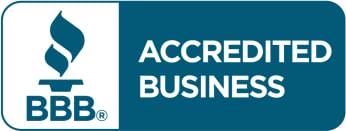Substance abuse tends to be more common among members of the lesbian, gay, bisexual, transgender and questioning community, mainly because LGBTQ individuals experience higher rates of discrimination when compared to their heterosexual counterparts. Coming out as a member of the LGBTQ community also increases the risk for bullying, family rejection, ridicule and hate crimes, causing some people to turn to drugs and alcohol to cope with their pain. At Virtue at the Pointe, experienced addiction professionals understand the risk factors for LGBTQ substance abuse and have experience providing personalized treatment.
LGBTQ ADDICTION STATISTICS
Each year, RTI International and the Substance Abuse and Mental Health Services Administration conduct the National Survey on Drug Use and Health to identify trends related to substance use. The survey asks participants to disclose whether they’re heterosexual or members of the LGBTQ community, allowing SAMHSA and RTI International to gather statistics about each group.
In 2018, the NSDUH revealed the following:
- Nearly 38% of LGBTQ persons reported marijuana use within the past year.
- Approximately 9% of LGBTQ people (18+) reported that they’d used opioids within the previous year.
- More than 12% of adult LGBTQ community members disclosed that they had an alcohol use disorder, representing no change from 2015.
More recently, SAMHSA reported that 6.8 million members of the LGBT community had a mental illness in 2019; 38.2% of those people had a serious mental illness. Additionally, 2.6 million LGBTQ individuals had a substance use disorder. Alcohol abuse was the most common SUD, affecting three out of five participants, while about 50% of participants reported struggling with a drug addiction. Slightly more than 16% had a substance use disorder involving both alcohol and illicit drugs.
Risk Factors for Substance Use Disorders in the LGBTQ Community
Anyone can develop a problem with substance abuse, but members of the LGBTQ community have certain risk factors that make them more likely to become addicted to alcohol or drugs. In the United States, heterosexuality is considered the norm by many people. As a result, members of the LGBTQ community face higher levels of discrimination and stigmatization.
Some LGBTQ youth are forced out of their homes because their family members disapprove of same-sex relationships, leaving them homeless. At school, young people may be subjected to bullying, physical attacks and ongoing humiliation by their peers. Teachers who don’t approve of same-sex relationships may contribute to this harassment by failing to punish students who engage in bullying and other harmful behaviors.
Many LGBTQ issues persist into adulthood. For example, adults can be bullied at work or when they attend social activities with their same-sex partners. In some areas, elected officials are actively working to take away the right for LGBTQ individuals to get married or share employment benefits with their significant others. All of these stressors increase the risk that an LGBTQ individual will need substance abuse treatment at some point.

Rehab Programs for LGBTQ Adolescents and Adults
LGBTQ rehab centers specialize in treating addiction issues in adolescents and adults who identify as lesbian, gay, bisexual, transgender and questioning. This type of treatment facility gives community members access to addiction treatment delivered by professionals who understand the challenges LGBTQ patients face in their daily lives. LGBT drug and alcohol rehab can help patients improve their coping skills and learn how to resolve interpersonal conflict without using alcohol and drugs.
Types of Treatment Centers
Some treatment centers offer outpatient care to community members who need a little extra support as they stop using drugs and alcohol. Outpatient addiction treatment often includes individual therapy, family counseling and group therapy. Residential treatment centers provide more comprehensive addiction treatment services. Every patient undergoes an initial assessment to determine the severity of their addiction and identify any underlying mental health disorders that need to be treated. In a residential treatment center, staff members offer several therapeutic approaches, giving patients access to drug and alcohol abuse treatment that’s customized to meet their needs.
Substance Abuse Treatment Options
Behavioral Therapies
Behavioral therapies are one of the most important components of any addiction treatment program. Cognitive behavioral therapy falls under this classification as it seeks to help people change their behavior and thought patterns. Attending regular CBT sessions gives patients a chance to address their mental health issues and learn how to cope with those issues without engaging in substance abuse.
Medications
For many people, medications are an essential component of a personalized addiction treatment plan. Initially, medications can be used to manage the symptoms of drug and alcohol withdrawal, keeping patients comfortable as they eliminate alcohol, prescription medications and illicit drugs from their bloodstreams. Medications can also be used to treat opioid addiction. The FDA has approved three medications for this purpose: methadone, naltrexone and buprenorphine.
Dual Diagnosis Treatment
Many lesbian, gay, bisexual, questioning and transgender individuals have a dual diagnosis, which means they have two or more mental health conditions, usually an addiction coupled with depression, generalized anxiety disorder, post-traumatic stress disorder or another behavioral health issue. These disorders can develop for many reasons, including the stress of living “in the closet” and being afraid to reveal their true sexual orientation.
Several treatment options are available for LGBTQ adults and teens struggling with dual diagnosis. For patients with post-traumatic stress disorder, eye movement desensitization and reprocessing (EMDR) therapy can be helpful for moving past the source of the trauma and reducing symptoms of PTSD. Addiction treatment centers may also offer brain stimulation therapies for depression or therapy to help patients with generalized anxiety disorder.






